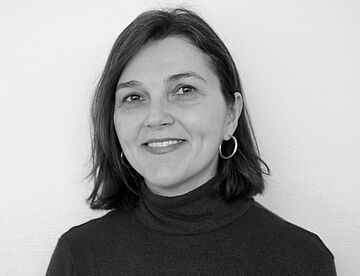![[Translate to English:] [Translate to English:]](/media/Publikationen/Weizenbaum_Series/Teaser/Weizenbaum_Series_32.jpg)
Connecting Digital Sovereignty and Sustainability
07/26/2023In a working paper on “Sustainable Digital Sovereignty,” WI scholars Bianca Herlo, André Ullrich, and Gergana Vladova have delved into the explicit connection between digital sovereignty and sustainability. In this interview, we explore the significance of this link and how to implement it.
In your recently published working paper entitled “Sustainable Digital Sovereignty: Interdependencies Between Sustainable Digitalization and Digital Sovereignty”, you touch upon two crucial topics widely debated in digitalization research: the significance of a human-centered, sustainable digital transformation and the concept of digital sovereignty. Could you explain what is meant by digital sovereignty?
Bianca Herlo: In this study, we conceptualize the digital sovereignty of individuals and collectives as the capacities and capabilities to navigate the digital sphere autonomously and securely, while actively participating in shaping digitalization processes. Our vision is to create a more equitable future for both people and the environment. In our perspective, pivotal elements that bridge environmental concerns and the pursuit of a fair and inclusive digital transformation encompass digital competence and education, social and digital inclusion, the mitigation of inequalities, and a shared focus on the common good.
Why is it important to consider digital sovereignty and sustainability in conjunction with one another?
André Ullrich: Digital sovereignty is primarily perceived as a vital foundation for autonomous governmental and economic activities, as well as for individual self-governance within the digital domain. It is currently being discussed and shaped through cooperative efforts and partnerships involving businesses and governments, emphasizing the recognition and safeguarding of human rights in the digital sphere and prioritizing value-oriented digitalization. This aspect holds significant importance, particularly when considering the potential for achieving sustainable and democratic digital sovereignty. In practice, this emphasis is manifested in the creation and utilization of digital technologies.
Bianca Herlo: Increasingly, and particularly since the COVID-19 pandemic, it has become evident that digital sovereignty must also align with the imperative of achieving sustainability goals. To effectively comprehend the interplay between social, political, economic, and ecological aspects, a comprehensive, interdisciplinary approach to digital sovereignty is essential. This approach should establish connections between objectives and courses of action across all levels of stakeholders – including governments and politics, public institutions and businesses, civil society, and individuals.
Which cause-effect relationships are particularly relevant in this regard?
André Ullrich: When examining the outcomes, the notable aspect is the interplay of various goals and areas of intervention. Key objectives in achieving sustainable systemic shifts towards socio-ecological digital sovereignty include the enhancement of digital literacy, sustainable development of digital technologies, ensuring high-quality education, and fostering research on pertinent subjects related to digitalization. These efforts form central objectives in pursuing sustainable systemic changes that prioritize socio-ecological digital sovereignty.
One of the outcomes of your study highlights the centrality of developing and implementing digital competences as crucial prerequisites for achieving socio-ecological digital sovereignty. How can this aspect be effectively advanced in practical terms?
Gergana Vladova: Our recommendations primarily revolve around empowering individuals to critically interact with technology and its data, integrating sustainability education into the learning process. Additionally, we emphasize the importance of establishing a dynamic education and training framework, enabling policymakers, business leaders, and members of society to acquire relevant skills in the realm of sustainable digitalization.
Bianca Herlo: An essential area of focus lies in promoting open knowledge and open access formats to enhance competences in digital sovereignty and sustainable digitalization. Transparent digital governance and enforceable minimum standards are vital in this regard. Emphasizing high data quality that positively influences data economy, fairness, and non-discrimination, while favoring public good-oriented data, is imperative. Furthermore, it is crucial to prioritize non-discrimination even during the development of technologies.
Gergana Vladova: Addressing the under-representation of women and minorities in the digital industry is essential, and educational and training institutions have a pivotal role to play. For instance, introducing more girls to STEM subjects during early childhood education and assisting them in overcoming existing stereotypes of aptitude can be fundamental steps in this direction.
Thank you for the interview!
The working paper entitled “Sustainable Digital Sovereignty: Interdependencies Between Sustainable Digitalization and Digital Sovereignty” was first published in German (see here) and was supported by the CO:DINA project on sustainable digitalization.
Bianca Herlo is a design researcher, designer and lecturer with a background in civic design and social design. She is Research Group Lead of the Research Group Design, Diversität and New Commons at the Weizenbaum Institute. Since October 2022, she has been a visiting professor for Transformation Design at the HBK Braunschweig.
André Ullrich leads the research group Digitalization, Sustainability and Participation at the Weizenbaum Instituteand is currently working on his habilitation on responsible and sustainable digitalization. He studied business administration with a focus on business information systems and finance & banking. He obtained his PhD at the University of Potsdam with a dissertation on Characteristics of Changeable Systems.
Gergana Vladova leads the research group Education for the Digital World at the Weizenbaum Institute. She is also a postdoctoral researcher at the Chair of Information Systems at Potsdam University, with an emphasis on processes and systems. She holds a master’s degree in international economic relations from the University of Sofia (Bulgaria), a master’s degree in communication sciences and economics from the FU Berlin and a doctorate in business informatics from the University of Potsdam.
Interview by Moritz Buchner.


